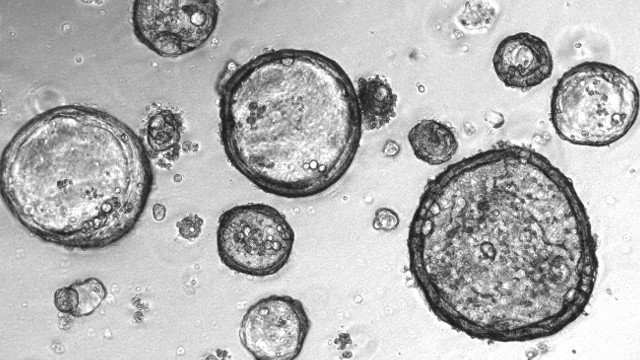Testing Treatments On Mini Tumors May Save Time When Treating Cancer
March 13, 2018
Tumor Organoids Predict How Well Patients Respond to Cancer Drugs
by Ruth Williams 2/22/2018
For cancer patients with just months to live, time is short--too short to try drug after drug with the hope of finding one that slows the disease. But lab-grown mini tumors derived from patients' cells could offer a way to test many drugs in parallel, saving time and possibly extending lifetimes. A report today (February 22) in Science brings this concept closer to clinical reality.
Previously, there has been "anecdotal evidence that observations in the clinic can be reproduced with organoids," says stem cell and developmental biologist Hans Clevers of the Hubrecht Institute in Utrecht, the Netherlands, who was not involved in the research. "But, [the authors] have now for the first time come up with a large number of cases like that and have statistical [results] that are very impressive."
They have "shown definitively that these organoids are predictive of response," Clevers continues. "I'm sure this is going to be one of the key papers in this field."
In the study, researchers focused on patients with recurrent metastatic cancer--tumors around the body and possibly also at the primary site that return after standard chemotherapies. When patients reach this stage, "their survival is in the region of months," says Nicola Valeri of the Institute of Cancer Research in Sutton, U.K. who led the research. Such patients are often recruited to clinical trials of new drugs, but the problem, says Valeri, is that there are a number of clinical trials to choose from. "If you go down the route of the right treatment, the patient might actually live longer . . . [but] if you go down the route of the wrong treatment, the patient might become too unwell to receive an alternative."
